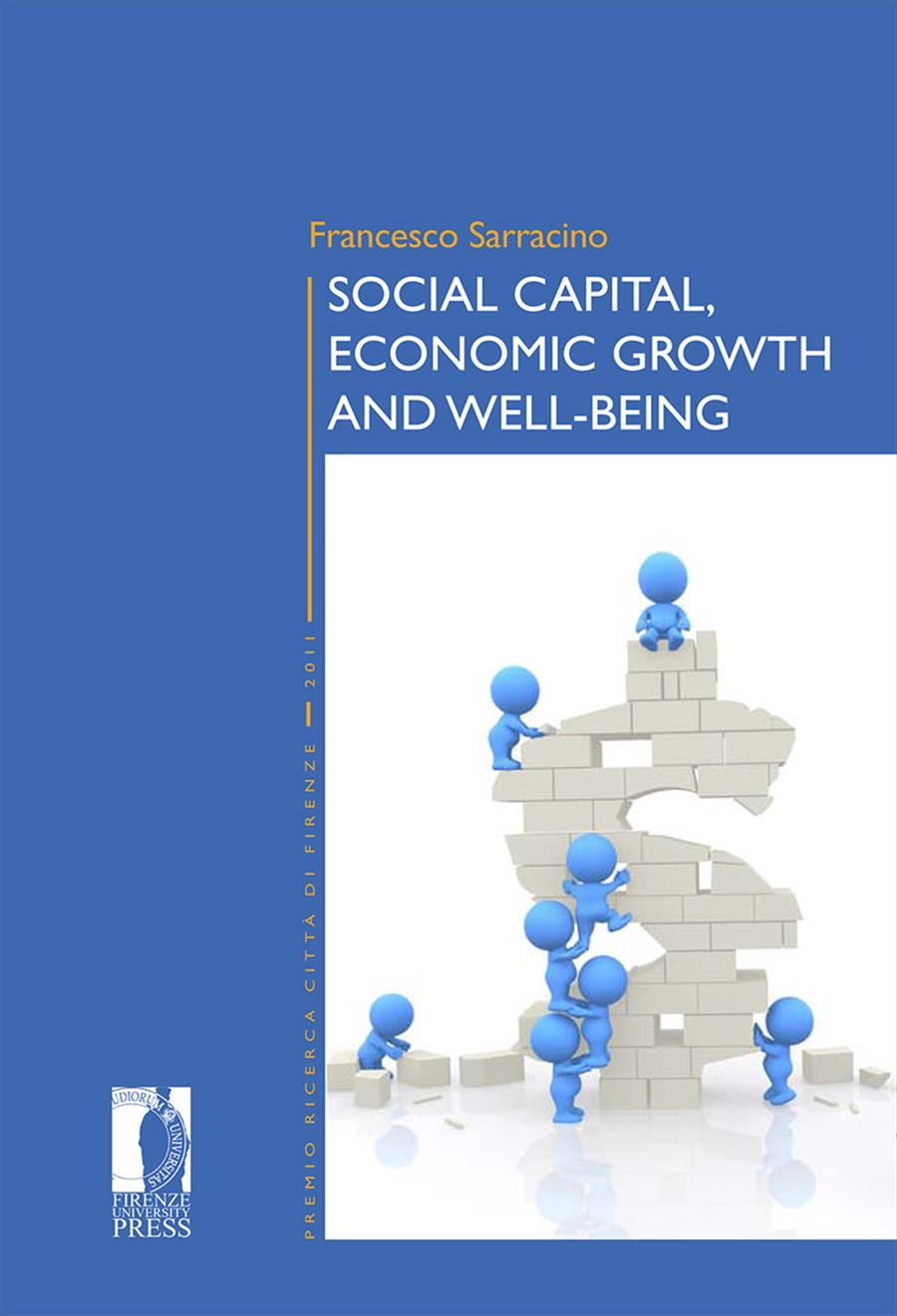Social capital, economic growth and well-being
- Francesco Sarracino,
In the long run economic growth does not improve people's well-being. Traditional theories – adaptation and social comparisons – explain this evidence, but they don't explain what shapes the trend of subjective well-being and its differences across countries. Recent research identified in social capital a plausible candidate to explain the trends of well-being.
This dissertation adopts various econometric techniques to explore the relationship over time among social capital, economic growth and subjective well-being.
The main conclusion is that social capital is a good predictor of the trend of subjective well-being, both within and across countries. Hence, policies for well-being should aim at preserving and enhancing social capital for the quality of the social environment matters.
- DOI: 10.36253/978-88-6655-277-2
- Series: Premio Ricerca «Città di Firenze»
- Scientific Board
- Language: English
- Subjects: Education
- Download PDF
-

- © 2012 Author(s)
- CC BY-ND 3.0 IT
STATEC, National Institute of Statistics and Economic Studies of the Grand Duchy of Luxembourg, Luxembourg
- Publication Year: 2012
- Pages: 166
- eISBN: 978-88-6655-277-2
- Content License: CC BY-ND 3.0 IT
- © 2012 Author(s)
- Publication Year: 2012
- eISBN: 978-88-9273-575-0
- Content License: CC BY-ND 3.0 IT
- © 2012 Author(s)
Bibliographic Information
Book Title
Social capital, economic growth and well-being
Authors
Francesco Sarracino
Peer Reviewed
Publication Year
2012
Copyright Information
© 2012 Author(s)
Content License
Metadata License
Publisher Name
Firenze University Press
DOI
10.36253/978-88-6655-277-2
eISBN (pdf)
978-88-6655-277-2
eISBN (xml)
978-88-9273-575-0
Series Title
Premio Ricerca «Città di Firenze»
Series ISSN
2705-0289
Series E-ISSN
2705-0297






